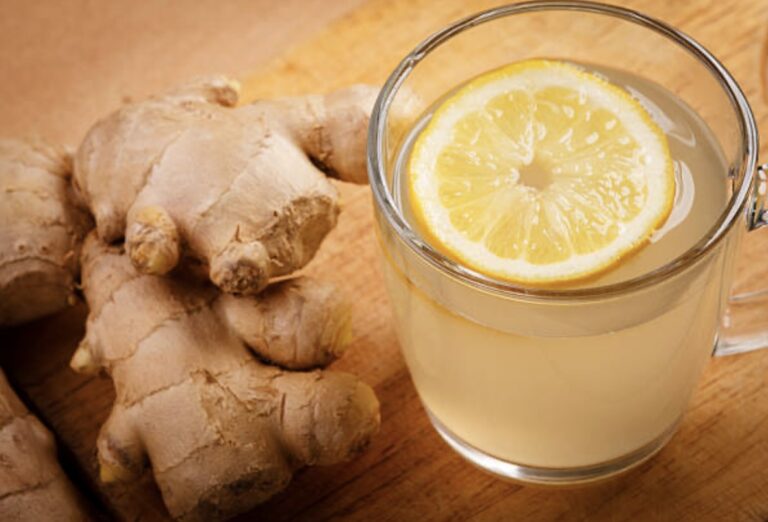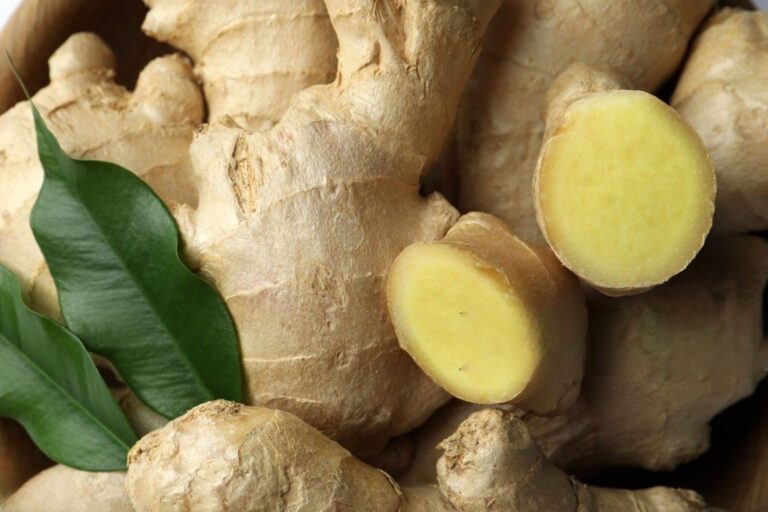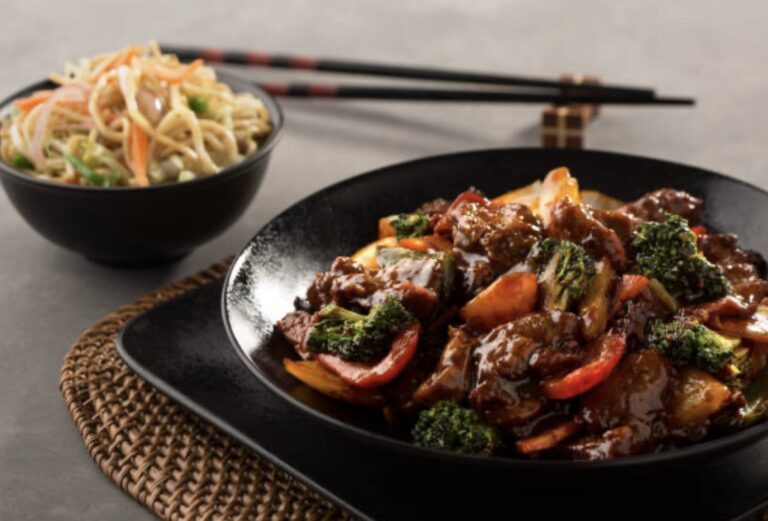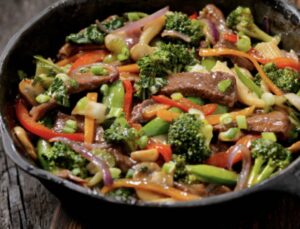Ginger Root For Digestion: A Natural Powerhouse for Digestive Health
Ginger root, the root of the ginger plant, has been celebrated for its medicinal properties for centuries. Originating from Southeast Asia, this versatile spice has found its way into every corner of the world due to its spicy, fragrant flavor and impressive health benefits. Ginger root for digestion is just one of the many benefits of this fragrant spicy root.
The History of Ginger Root
Ancient Chinese and Indian texts heralded gingerroot for its healing properties, particularly concerning digestive ailments. It spread to Europe with the Roman Empire, becoming a commodity in the Mediterranean trade route.
Understanding Ginger Root
The ginger root is the rhizome or underground stem of the ginger plant. It’s brimming with gingerol and shogaol, compounds responsible for its therapeutic effects. These bioactive compounds offer significant digestive benefits like promoting gastric motility and alleviating nausea.
Today, the use of ginger root has transcended traditional medicine. It is commonly found in kitchens for culinary use and also as a therapeutic remedy in alternative medicine. Modern research has verified many traditional claims of ginger’s benefits, particularly for digestive health.

Digestion: An Essential Human Process
Digestion is an intricate process your body performs to break down food into nutrients. It involves a beautifully choreographed interplay among numerous organs.
Decoding Digestion
The process of digestion begins in your mouth and ends in your anus. Along the way, food gets broken down for absorption and waste removal.
Common Digestive Ailments
Our fast-paced, high-stress society, coupled with poor dietary choices, can lead to various digestive problems like irritable bowel syndrome (IBS), acid reflux, and gastritis.
The Need for Natural Solutions
While there are myriad over-the-counter and prescription drugs available, they often come with potential side effects and can be costly. Natural solutions, like gingerroot, provide a safe, cost-effective alternative for digestive health.
Ginger Root and its Role in Digestion
Ginger root can soothe the digestive system, reducing inflammation and promoting smooth digestion.
Ginger Root Impact on Digestive Issues
Numerous studies support the efficacy of gingerroot for digestive health. It is known to help with everything from nausea and vomiting to intestinal motility and absorption.
Incorporating Gingerroot in Daily Life
Adding ginger root to your diet can be as simple as grating fresh ginger into hot water for tea or using ground ginger in your cooking. Just remember, like all good things, moderation is key. I keep some in the freezer, because fresh doesn’t last as long as I would like it to, and I always like to have some on hand. I love cooking with it. As scientists delve deeper into the myriad health benefits of gingerroot, its prominence in digestive health is only likely to grow.

Challenges and Limitations of Using Ginger Root
While ginger root is generally safe for consumption, it’s crucial to bear in mind the potential side effects and practicality of use.
Understanding the Side Effects
Excessive intake of ginger root can lead to mild heartburn, stomach upset, or diarrhea. If you’re pregnant or breastfeeding, remember to consult your healthcare provider before increasing your ginger intake.
Ginger root is widely available and easy to incorporate into your diet, but it’s not a magic cure for all your digestive woes. It should supplement a balanced diet and healthy lifestyle, not replace it. While gingerroot has shown promise in scientific studies, more extensive research is necessary before declaring it a definitive solution for digestive health problems.
Ginger Root, A Digestive Ally?
Taken in moderation, ginger root can be a great natural way to help support your digestive health. However, remember to maintain a healthy lifestyle and consult with a healthcare provider if you have serious or persistent digestive issues.
Ginger root is a promising natural solution to digestive issues, supported by tradition and increasing scientific evidence. But like all remedies, it must be used with care and understanding.

The Magic of Ginger Root in Stir Fry Recipes
Isn’t it wonderful to come home to a warm, spicy, and filling meal at the end of a long day? A good stir-fry can be a game-changer for your dinner game, and the star ingredient that elevates this simple dish to gourmet levels is none other than ginger root.
The Power Punch of Ginger Root
The distinct flavor and aroma of ginger come from its natural oils, the most important of which is gingerol. Not only does it give your stir-fry a warm, sweet, and slightly fiery depth of flavor, but it also packs numerous health benefits. It’s one of those power-packed ingredients that are as good for your body as it is for your taste buds!
The Aromatic Factor
Ginger root adds much more than just a warm, spicy accent to your food. It uplifts the underlying flavors and balances the heat in your dish, offering a symphony of flavors with each bite. Another exciting thing about ginger is that it’s versatile – whether you add it at the beginning of your cooking for a milder flavor or at the end for a more pronounced gingery zing, it never disappoints!

How to Integrate Ginger Root into Your Stir-Fry
Adding ginger root to your stir-fry recipe is as easy as pie. You can add it fresh, dried, and even pickled! Here’s how:
Fresh: Just peel and grate to add a kick to your stir-fry.
Dried: If you don’t have fresh ginger root, ground ginger also works well. Use smaller amounts as it’s concentrated.
Pickled: These are sweeter and can be added to add a punchy flavor.
Stir-Fry Recipe with a Twist of Ginger
Excited to try? Here’s a simple stir-fry recipe where ginger takes center stage:
Heat 2 tablespoons of vegetable oil in a large skillet over medium heat.
Add 2 diced chicken breasts, (you could also substitute beef here)season with salt and pepper, stir and cook until browned.
Add 1 tablespoon freshly grated ginger and 2 cloves of minced garlic. Stir well.
Next, add a variety of veggies like bell peppers, zucchini, and carrots. Stir fry until tender-crisp.
Finally, splash in some low-sodium soy sauce, and a sprinkle of sesame seeds, and toss everything together until well combined.
Serve your succulent ginger stir-fry with steamed rice for a delicious and healthy meal!
Isn’t that simple, yet amazing? The hero of this classic dish, ginger root, is unfailingly giving your stir-fry a powerful flavor bomb that tastes like heaven.

Wrapping Up The Stir-Fry Magic
Stir fries are an easy and fantastic way to pack in nutrition, color, and flavor into your everyday meals. The fiery kick of ginger root takes this humble dish to a whole new level of complexity and adds a warmth that lingers pleasantly on your palate. So next time you’re in the kitchen, don’t forget to include the mighty ginger root in your stir fry and let its magic reinvent your culinary concoctions. Bon appétit!
The future for ginger root looks bright – as research expands, so does our understanding and appreciation of this humble root’s potential for digestive health.
Frequently Asked Questions
Yes, ginger root is known for its ability to relieve indigestion. It can accelerate gastric emptying, preventing the buildup of gas and reducing discomfort associated with indigestion.
Ginger root can be consumed in various forms, such as fresh, powdered, or as a supplement. It can be added to meals, brewed as tea, or taken in capsule form. Consuming it before meals may be particularly beneficial for digestion.
Yes, ginger root may help reduce bloating and gas. It has carminative properties, meaning it can help expel gas from the digestive system and provide relief from bloating.
In general, ginger is considered safe for most people. However, consuming excessive amounts may cause mild side effects such as heartburn or digestive discomfort.
Ginger root is often considered safe for pregnant women and is commonly used to alleviate morning sickness. However, pregnant women should consult their healthcare provider before using ginger supplements, especially in large amounts.
Ginger may interact with certain medications, such as blood thinners. It’s essential to consult with a healthcare professional before incorporating ginger supplements into the diet, especially for those on medication.


